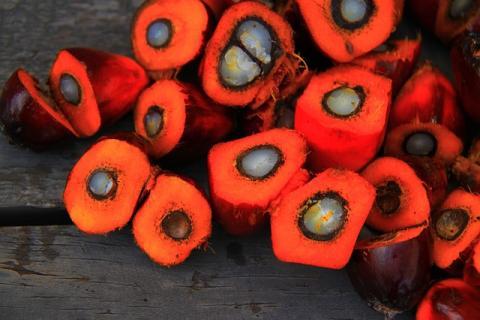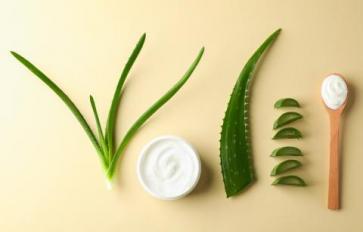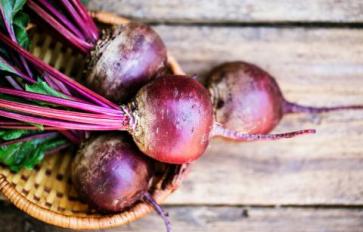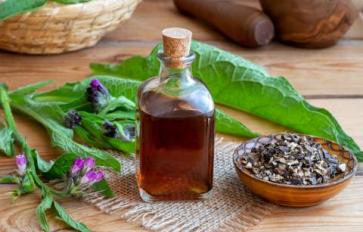
Palm oil is currently the most widely used vegetable oil in the world. It can be found in shampoos, cosmetics, foods, household cleaning items, health items, and many other kinds of products purchased today. Seems like an innocent oil, right? Well, I’m here to tell you the dark truth of palm oil, as well as give you three better alternatives you can use to replace it.
Palm oil comes from the middle layer of the fruit in oil palm trees found in tropical countries like Indonesia and Malaysia. Okay, 65% percent of the entire world uses palm oil, but its high-demand has increasingly begun to negatively impact many animals, the environment, and people.
I first was informed about palm oil’s deadly truth from the Oregon Zoo. Because of the high-demand for palm oil, massive amounts of forests are being cleared-out to make way for more unsustainable palm plantations. According to the World Wildlife Fund (WWF) there is a very high rate of unsustainable palm oil production. The production companies’ unsustainable practices have caused heavy deforestation, endangering animals to near extinction and killing off forest habitats, while causing extreme climate changes in tropical countries like Indonesia—where palm oil is often harvested. Animals such as sun bears, orangutans, elephants, hippopotamuses, and tigers are losing their homes to the production of this vegetable oil. The palm oil plantation trails created throughout the forests are allowing more accessibility for poachers to target wildlife. Among other problems, palm oil production has also been known to lead to several property struggles among the local population, whose homes and lands are being overtaken for more planation building.
Organizations like WWF and other environmental agencies are trying to push for more improved, sustainable productions of palm oil. So far around only 18% of palm oil production is considered safe and sustainable, so there is still much work to do. Palm oil production companies provide jobs and help decrease poverty, which is why environmental organizations are trying to push production companies to continue in a sustainable manner. Although these eco-organizations are heavily dissuading palm oil companies from using unsustainable practices, many companies are still using them because of palm oil’s increasing consumer demand.
So what can you do to help? Stop using products that contain palm oil or only purchase palm oil that is labeled as sustainable. By doing so, you can help slow down its production, which can in return encourage palm oil companies to use sustainable practices. Remember: you are the consumer, and companies only produce more of what their consumers want.
Need some healthy vegetable oil alternatives to palm oil? Look for these following oils which cost around the same price and may even be more beneficial than palm oil itself.
- Coconut Oil
The oil extracted from the meat of mature coconuts. This oil is very high in saturated fat, just like palm oil. Some uses for coconut oil include digestion improvement, immune support, heart disease prevention and weight loss. It is known to be similar to palm oil because it is also used to repair or heal certain skin and hair conditions. Plus, coconut oil is antifungal, and is said by many to taste and smell much better than palm oil. This oil is great to use as an alternative to palm oil for health products, foods, and more. The best and healthiest kind is the unrefined organic virgin coconut oil.
- Avocado Oil
The oil that is extracted from the flesh of the avocado fruit. This is one of my favorite oils to use because it has a higher smoke point than palm oil as well as a better taste. Avocado oil is said to contain large amounts of both proteins and unsaturated fats, which is known to be great for healing, repairing and improving skin. Palm oil is high in vitamin E, but avocado oil is high in vitamins E, A, and D. On top of that, avocado oil is high in lecithin and potassium, which makes it excellent for your hair too! This oil can be used daily for many purposes, making it a great alternative to palm oil. It is preferred that you buy organic avocado oil, which is made using organic, chemical-free practices.
- Olive Oil
The oil that comes from the small oval fruit known as the olive. Although it is not recommended for cooking or baking because of its low smoke point, it can be used for certain non-heated dishes, cosmetics, pharmaceuticals, soaps, and even as fuel for traditional style oil lamps. Because olive oil is rich in monounsaturated fats, it can help with the lowering of bad cholesterol levels in the blood. Not only is olive oil high in vitamin E, like palm oil, but it is also high in antioxidants as well. Organic extra virgin olive oil is considered the best and least processed in regards to the oil from the first pressing of the olives.
Now that you know palm oil’s dark truth, I encourage you to try these alternatives. And if you absolutely must use palm oil, please make sure it is the sustainably sourced kind. By doing this, you can make a valued difference to animals, the environment, and people suffering because of the unsustainable practices used by palm oil production companies.








